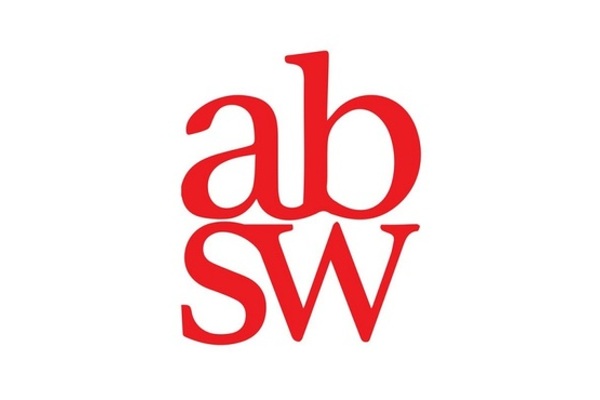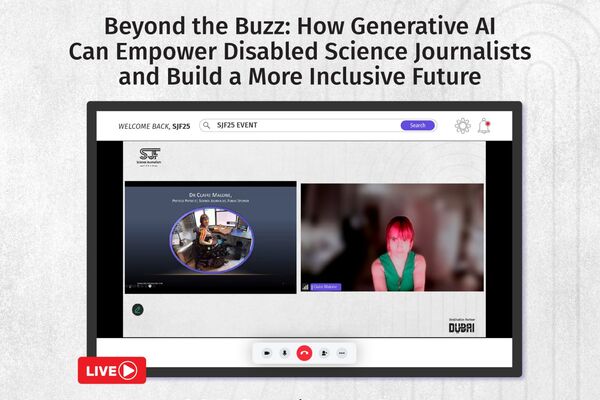This article was originally published on Journo Resources, as part of a collaboration with the ABSW to support entry-level journalists. You can find out more about the Journo Resources Fellowship here. Or check the fellowship archive online.
Photo: Pixabay via Pexels
In this article, you can find:
- What Are The Legal Challenges For Science Writers & Journalists?
- How Can You Protect Yourself Without Insurance?
- How Can I Make Insurance Affordable?
- Won’t The Publication Protect Me From Lawsuits?
- What To Look Out For In Publisher Contracts
- What Type Of Insurance Do Science Writers & Journalists Need?
- Providers (infobox)
- Types of Cover (infobox)
Imagine you write and publish an article about a complex scientific topic after months of meticulous research and interviews. It’s well-received, but then a company featured in the article claims you misrepresented their data and threatens to sue for defamation.
Meanwhile, a researcher whose work you referenced without explicit permission accuses you of copyright infringement. Suddenly, you’re engulfed in a legal and financial nightmare.
For science writers, this isn’t just a hypothetical scenario; it’s a real and growing risk. Yet many science writers don’t have insurance. So, should you invest? We explore the pros and cons, as well as practical tips on where to get insurance should you choose to take it out.
What Are The Legal Challenges For Science Writers & Journalists?
Science writers report facts and translate complex data and research into accessible language to communicate complex topics to the public, professionals, and policymakers. The challenge is balancing accuracy with accessibility — any error can lead to legal and financial consequences.
Covering controversial issues — like medical research, pharmaceutical developments, environmental issues, and corporate practices — heightens the risks. This could lead to defamation cases, defending your work, or claimants protecting their reputations from media attacks.
For example, in 2024, nutrition researcher Zoe Harcombe and GP Malcolm Kendrick sued The Mail on Sunday for libel over a series of articles which claimed they were “statin deniers” who published “fake news”. Following a preliminary trial, the paper agreed to pay “substantial damages”, not repeat the claims, and publish an online apology.
However, when the British Chiropractic Association (BCA) sued Simon Singh, after the science writer had called their chiropractic treatments for childhood conditions “bogus”, the Court of Appeal ruled in the journalist’s favour.
It’s worth noting, though, that the BCA chose to sue the individual writer, rather than The Guardian, in which the piece was published, and it cost two years and hundreds of thousands of pounds to defend. “It’s extraordinary this action has cost £200,000 to establish the meaning of a few words,” Simon told reporters after his victory.
At the time, the case prompted calls for changes to the UK’s defamation laws, with thousands of journalists, politicians, and scientists saying the current rules were stifling scientific debate.
In short, the legal threats can be complex, with attempts to discredit scientists, journalists, and publications who question prevailing narratives or threaten commercial interests. But that doesn’t mean everyone is opting to take out insurance.
How Can You Protect Yourself Without Insurance?
“Doing good quality work should be protection enough,” says Dr Stephanie Swift, a writer who focuses on medical writing and data analysis. Ethical journalism, from conducting thorough research to citing sources correctly, is always the best way to minimise risk from the get-go.
Peter Wrobel, a former chair of the Association of British Science Writers, agrees that accuracy, source verification, and avoiding conflicts of interest are the foundation of any science piece. “If you’ve actually been negligent, insurers would probably not pay out [anyway],” he explains.
“So, be very careful about what you write,” he continues. “Be very careful about writing things in which you may have a financial interest, check your sources, so you can show reasonable care, keep emails and records that people send to you, [and] make sure that you’ve got backups of all information in the cloud, so that if your laptop is stolen or stops working, you can retrieve all your data.”
He adds that while fair comment is a valid defence in law, writers should always seek to avoid sensationalism and overstatement, acknowledge the limitations of research or data, distinguish between scientific consensus and ongoing debate, and respect privacy and confidentiality.
Often, science writers assume their work is low risk because they report on peer-reviewed research or cite credible sources. However, it’s always important to fact-check and avoid sensationalism, both key protections to avoid defamation and copyright lawsuits.
Dr Lily Canter, a health journalist and the co-founder of Freelancing for Journalists, adds: “Knowledge of media law is king. You need an understanding of media law to know what you can and can’t publish.” In other words, a copy of McNaes is a good investment.
How Can I Make Insurance Affordable?
For many writers, it’s the cost of insurance that puts them off; it’s certainly not cheap when writing covers high-risk fields like medicine, pharmaceuticals, or biotechnology. Especially for freelance and early-career science writers, whose income can be inconsistent or only offer a few hundred pounds per article, it can seem costly. While the exact cost will depend on the type of work you do, research from Guild Freelancers in the USA found it can cost anything from US$500–1,500 a year, while UK insurance websites advertise starting fees of from £10–30pm.
As a result, Dr Sarah Bearchell, a science writer who also works on workshops with primary school children, advises planning ahead to spread payments out. “Save yourself the shock and build out your insurance costs throughout the year,” she explains.
Dr Lily adds that it can also be useful to assess risk on a case-by-case basis: “Consider insurance on a job-to-job basis, that way you can keep a track of how much the job is costing you and whether it is worthwhile.”
Won’t The Publication Protect Me From Lawsuits?
Science writers and journalists working with major publications and media outlets often assume the publisher will protect them should a legal dispute arise. However, this isn’t always the case — without an agreement, there’s no guarantee that a publication will protect you, meaning you could be left to fight and fund any legal cases on your own. In short, it is the writer’s responsibility to clarify whether the publisher’s team will offer any protection before they start work and ensure that their contract specifies it. Even staff writers at smaller publications might find themselves without a cover, so it’s worth checking before you start a staff role too. If there’s nothing in the contract, you can’t rely on any publisher protection.
Dr Sarah explains: “Policies cover employees of publishers, broadcasters, and universities, but not freelancers. If you comment on technologies, drugs, or other scientists’ work, you need insurance. The same applies to science writers who give advice or work in classrooms”.
According to Andy Smith, a senior organiser at the National Union of Journalists (NUJ), it all depends on “the circumstances of the member, the nature of their work, and on the contracts they are working under”. In all cases, he urges writers to “read contracts carefully and push back on warranties where necessary”.
For many writers, this is part of a growing (and worrying) trend, where publishers, media outlets, and institutions are transferring legal responsibility onto freelancers and independent contributors, which enables them to avoid accountability for their editorial decisions.
The Association of British Science Writers’ manifesto for freelance science writing, for example, calls on publishers to ”provide insurance and legal defence for freelancers who are threatened or sued in the course of reporting a story.” The manifesto adds: “Maintaining a healthy pool of experienced and happy freelancers is critical for the diversity and vitality of science journalism. Unfortunately, freelancers are not always appreciated and supported as much as they could be.”
However, in a shifting landscape, it will take contract negotiation, collective action, and industry-wide advocacy to push back against a growing trend — but it all starts with reading your contract in the first place and asking questions.
What To Look Out For In Publisher Contracts
Some publications may even say insurance is a contractual obligation, says Fred Hicks, the senior policy and communications advisor at the Association of Independent Professionals and the Self-Employed (IPSE). “Know your worth and costs before accepting work,” he stresses. Dr Lily adds: “If insurance is a requirement, consider if it’s a publication you want to work for, the commission size, and request a contract to clarify liability.”
Dr Stephanie often advocates for an indemnity clause in her contracts, which clearly sets out who is responsible when things go wrong in different scenarios. She simply explains it as a statement setting out: “I’ve done this work to the best of my abilities and it is an honest and transparent interpretation of the research.”
Put together properly, this can protect the writer if the client misuses or publishes your work incorrectly. Well-crafted contract clauses can cover copyright, attribution, exclusivity, plagiarism, and confidentiality.
What Type Of Insurance Do Science Writers & Journalists Need?
All of this to say that your taking out coverage isn’t as simple as popping to the shops — you’ll need to make sure you find a policy that fits your needs.
It’s worth thinking about the type of work you’re undertaking; investigative journalism will carry more risk than copywriting or features, which should be weighed against the high legal costs of defending a claim. Andy says: “Consider the cost of insurance, the likelihood of a claim, and the potentially high personal costs of being uninsured.”
Dr Stephanie adds: “Working remotely or face-to-face, internationally or in the UK, and your client type — [they all] influence insurance needs. A pharmaceutical client may require different coverage than an academic team.”
As well as factual errors, you’ll also want to think about protection for defamation if someone disagrees with the framing of the story, copyright if you accidentally use scientific images, graphs, or charts without authorisation, and who’ll foot the bill for any legal costs or periods of time where you might find yourself out of work.
As Simon Singh’s case shows, even winning a legal case isn’t always enough. Legal fees, court costs, and lost income from missed work opportunities can spiral into thousands of pounds. The professional and financial damage caused by a legal battle can linger for years.
However, the choice of whether or not to take out insurance is a personal decision only you can make a call on.
“Ultimately, it depends on what your attitude to risk is,” says Fred. “Some industries, lines of work or forms of writing are more likely to run into a claim than others. So if you’re writing about something controversial or less controversial, make a judgment call, based on your risk profile.”
Providers
When seeking an appropriate insurance provider, speak to friends, family and colleagues, as well as draw on the advice of professional bodies such as the ABSW, NUJ, STEM Learning, the Society of Authors, IPSE, Equity, the National Association of Writers in Education, and the Guild of Motoring Writers. Some may even be able to provide discounts with recommended suppliers.
Some options for writers and journalists include:
• Hiscox
• Jensten Insurance Brokers
• Knightsbridge
• Markel
• Mode
• Performance Film & Media Insurance
More general options include:
• AON
• Caunce O’Hara
• Directline
• Freelanceinsure
• PolicyBee
• Professional Saver
• Qdos
Types Of Cover
“If you’re self-employed, it’s always wise to be protected,” says Fred Hicks of IPSE. “As writers, you might be sued for something you wrote, but actually, there’s a lot more that can go wrong.”
Here are just a few common types of insurance to think about:
• PROFESSIONAL INDEMNITY: This covers defending and settling claims for negligence and mistakes, unintentional breaches of confidentiality or copyright, defamation, libel, loss of documents or data, or an unintended breach of contract.
• PUBLIC LIABILITY: This covers the costs of injury to a third party, whether a person or an object. This can be useful for people who deliver workshops, training, or meetings.
• LEGAL EXPENSES: This will cover a business against legal costs, such as jury duty, tax investigations, or contract disputes.
• INCOME PROTECTION: Safeguards your income during periods of illness or inability to work.
When taking out any type of insurance, make sure to take advice, read the documentation carefully, and consider if it meets your needs.

Nichola Ibe is a geologist, writer, journalist, and social activist from London. A scientist churning out facts, her mission is to present the unpalatable in a digestible way and tackle serious topics with a light touch. With a deep awareness of social inequalities, she desires to address these issues through her writing. She writes fiction and non-fiction, where she seeks to challenge stereotypes and offer accessible social critique while spotlighting untold stories.










